

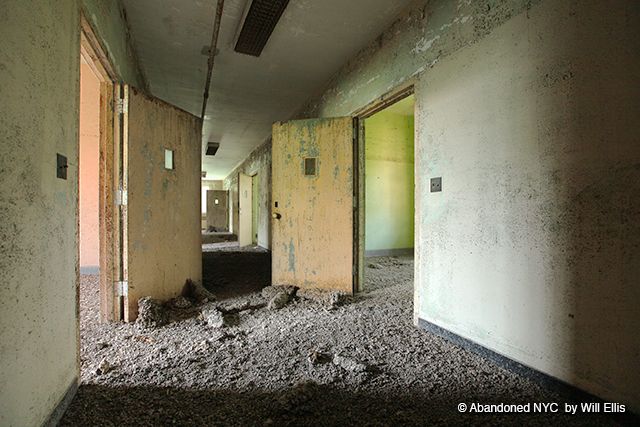
Creedmoor Psychiatric Center’s Building 25 was once a haven for New York City’s cast-out mentally ill, but today it houses a much more reviled and equally misunderstood breed of New Yorker–they’re pigeons, and you won’t believe what they’ve done with the fourth floor…The sprawling Creedmoor campus was constructed in 1912 in Queens Village as the Farm Colony of Brooklyn State Hospital, one of hundreds of similar psychiatric wards erected at the turn of the century to house and rehabilitate those who were ill equipped to function on their own.
Rejected by mainstream society, hundreds of thousands of mentally disturbed individuals, many afflicted with psychosis and schizophrenia, were transferred from urban centers across the country to outlying pastoral areas like Creedmoor where fresh air, closeness to nature, and the healing power of work was thought to be their best bet for rehabilitation. These self-sufficient communities provided men and women with serious mental disorders a safe, structured environment in which to live, work, and receive medical and psychiatric care.
As the 20th century progressed, asylums across the country became overrun with patients, and many institutions became desperately understaffed and dangerously underfunded. Living conditions at some psychiatric wards grew dire–patient abuse and neglect was not uncommon in this period. By 1960, Creedmoor’s population swelled from 150 in 1918 to over 7,000. As late as 1984, the violent ward of Creedmoor Psychiatric Center was rocked with scandal following the death of a patient, who was struck in the throat with a blackjack by a staff member. (The man was restrained in a straitjacket at the time.)
With the development of antipsychotic medications came a trend toward deinstitutionalization. A series of dramatic budget cuts and dwindling patient populations led to the closing of farm colonies across the United States, and a marked decline at Creedmoor. The campus continues to operate today, housing only a few hundred patients and providing outpatient services. Many of the buildings at Creedmor have been sold off. Others, like Building 25, lie fallow.
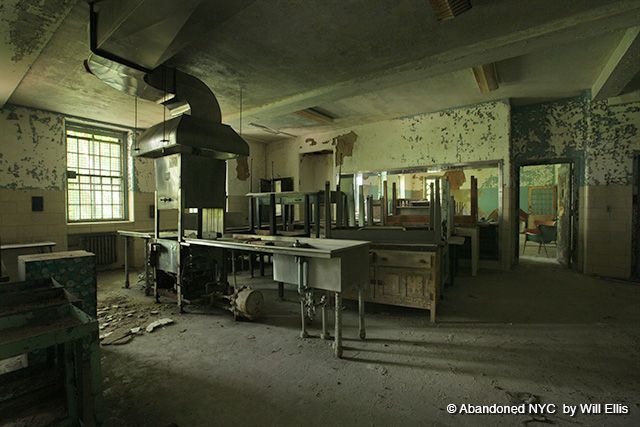
Creedmor was dead quiet on the day I stopped by, with the exception of an occasional patient wandering the grounds. Building 25 sat on a mostly fenced-off area in the middle of the active complex, practically hidden in the overgrowth.
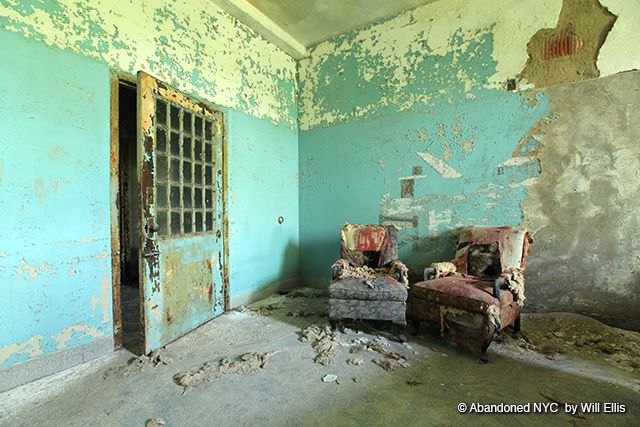
Inside, the boarded-up first floor held the most artifacts, with some rooms filled to the brim with mattresses, wheelchairs, and medical equipment. The hospital’s smaller mementos were more captivating–a tiny collection of plastic trinkets, a grungy brassiere hung from a pink hanger, a newspaper clipping pronouncing the medical benefits of whiskey. Having seen most of the rooms on the lower levels, I headed to the central staircase and ascended.
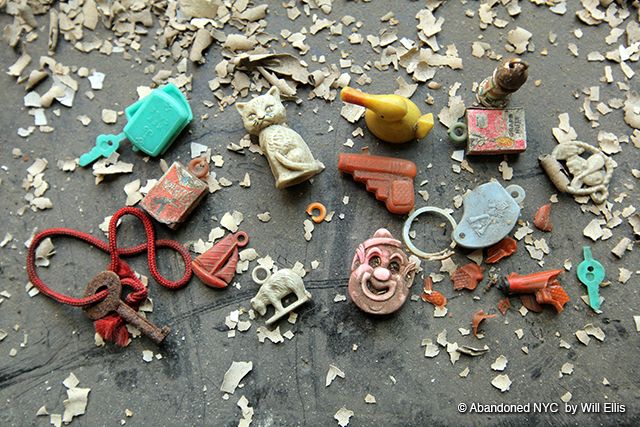
Upon opening the door to the fourth floor, a noxious wave of the most nauseating fetor hit me like a brick wall. Amassed in hulking heaps, coating and carpeting the floors beyond recognition, the fruit of a thousand cloacae festered in the 90-degree heat.
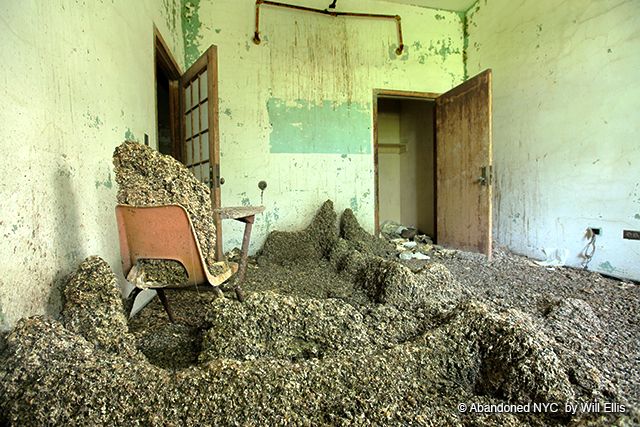
For the past 40 years, generations of pigeons have haunted this floor at Creedmor’s Building 25, far removed from their dim-witted dealings with the human world, assembling a monument all their own. The effect is visually fascinating, lending some rooms the look of an indoor desert. In others, guano accumulates in stalagmites under popular roosts, with the tallest formations reaching several feet in height. Carcasses litter the surface, hinting at an even larger number entombed in the filth.
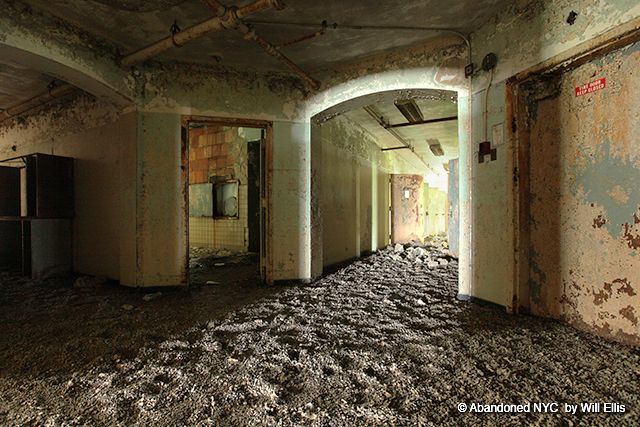
Every move I make is tracked by suspicious pigeons overhead, their black eyes gleam differently at Creedmoor than they ever did on the sidewalk. Worse–their low, rumbling coos take on a decidedly sinister quality here, with violent fits of flight punctuating an otherworldly soundscape. After spending over an hour in this miasmal hell, the decades-old mustiness of Building 25’s lower floors filled my lungs like the purest mountain air.
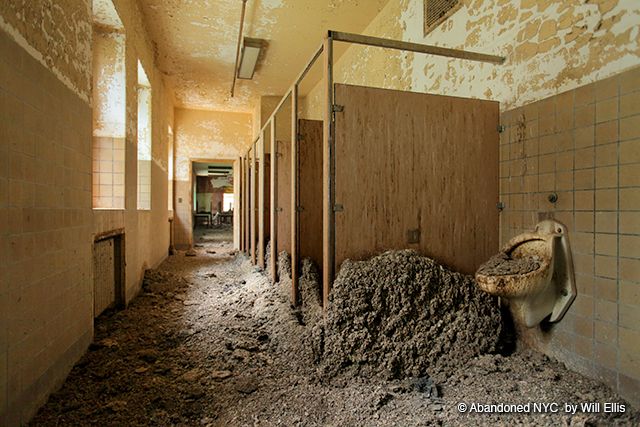
On the second floor of Building 25 I came across an elaborate squatter’s residence in the central dining hall. Mounds of a different type accrued here, but reached greater heights than any on the fourth floor. The kitchen was filled with years’ worth of garbage intersected by narrow, meandering pathways. A living room, kept relatively tidy, featured a sitting area with an array of chairs (including one homemade toilet). A system of organization began to emerge from the seemingly random assortment of objects that covered each surface–toiletries, clothing, condoms, hundreds of dead D batteries. An uncomfortably recent edition of a local newspaper confirmed my suspicion; this place was still inhabited.
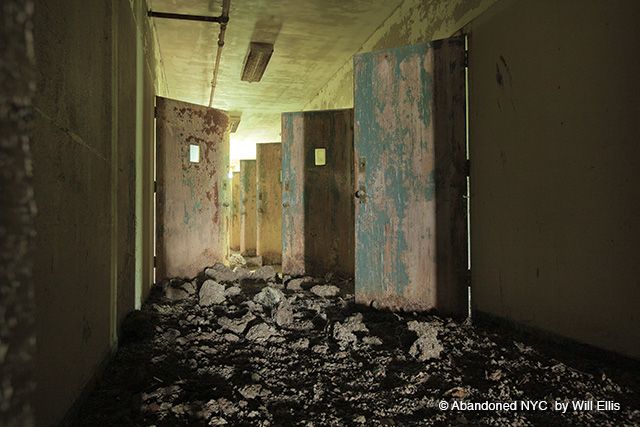
I reluctantly continued to the last room I planned to photograph, distinguished by a colorful series of murals by the patients at Creedmor. Once painted over, images of faraway lands, country gardens, and the Holy Mother are coming to light again as time peels back the layers. It took moments to register the man snoozing peacefully in the light-filled dayroom, the man whose peculiar home I’d been invading all morning. Declining to introduce myself, I made a break for it, passing once more through the dark, decaying halls of Building 25, leaving its charms, horrors, and mysteries for the birds.
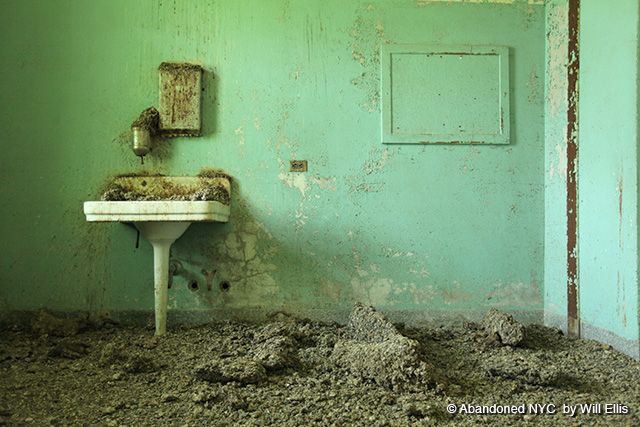
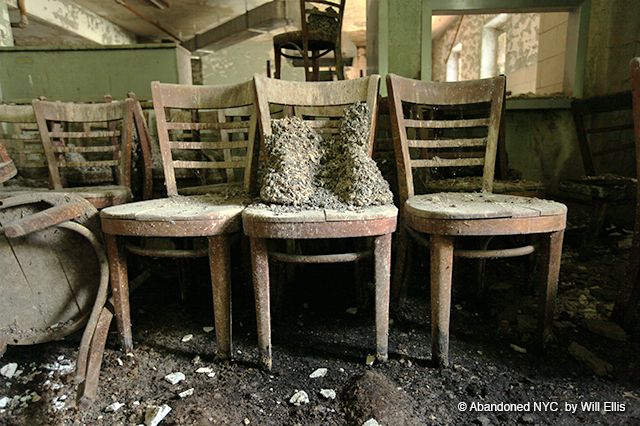

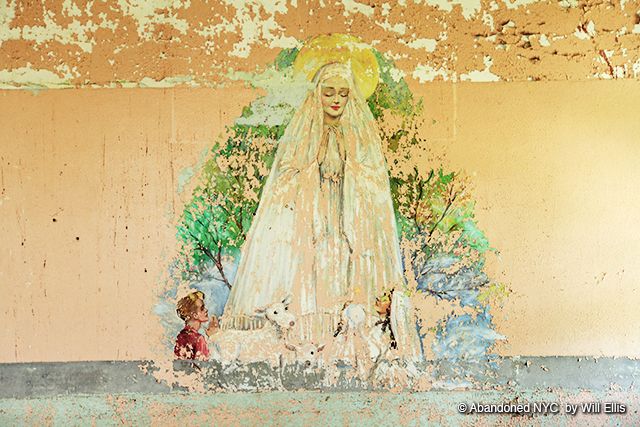
Visit Abandoned NYC for even more photos from inside Creedmoor State Hospital.

